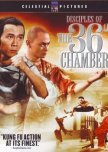
Tired and stagnant
On paper, the premise for Disciples of the 36th Chamber probably sounded promising, sadly this is a disappointing finale to the 36th Chamber trilogy. There's little of the inventiveness and vitality that figured so heavily in the previous films, instead, we're given a sub-standard kung-fu revenge plot tinged with the occasional comedic beats. It feels like a product of yesteryear, marking the passing of the torch when it comes to populist Hong Kong action cinema. One that relegates Gordon Liu to a mere supporting role and focuses on the most annoying Fong Sai-Yuk in the history of Hong Kong cinema as played by Hsiao Ho. That being said, Lau Kar-Leung's direction remains particularly strong but it's his script where the film falls apart, with a few tweaks here and there, it could have been a winner. The usual production values that so epitomise a Shaw Brothers production are all here but ultimately it's at the expense of awfully sluggish pacing, this is the shortest film of the trilogy and yet it feels the longest to the point at which I felt I was zoning out. Sadly, there's not a lot to distinguish Disciples of the 36th Chamber as its own unique experience. It feels tired and stagnant, even with all its traditional Shaw Brothers style, signifying a changing tide for audiences.Was this review helpful to you?
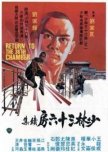
Fun-filled parody of the original
A bizarre, unconventional, almost anachronistic parody of the original 36th Chamber, Return to the 36th Chamber is just as much fun as its predecessor albeit for very different reasons. Equal parts spoof and as it is a straightforward martial arts actioner, the film recasts Gordon Liu as a down-on-his-luck con artist learning the ropes from the very character he played in the original, one that pushes Liu's comedic chops to the forefront and one he pulls off exceptionally well. The lighter tone and bigger focus on comedy oddly work in the film's favour, it's a welcome change of pace in direct contrast to the original, one that I found myself laughing at consistently. Lau Kar-leung maintains his stunning direction with just as much emphasis here on training sequences versus actual fighting which are once again a fantastic sight to behold. Admittedly, some aspects of the plot don't hold up to intensive scrutiny, but for what it is, Return to the 36th Chamber works. A fun-filled, highly engaging piece with a heightened sense of reality that will please fans and newcomers alike.Was this review helpful to you?
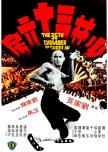
World's longest training arc
Offset by the longest training montage known to man, Liu Chia-Liang's trend-setting classic, The 36th Chamber of Shaolin mythologises the true story of a monk who took his martial teaching out of the temple and into the secular world and in turn boiling the revenge drama down to almost abstract levels, one that is often heralded as one of the most influential martial arts films of all time. Leung directs this movie masterfully, making fabulous use of the epic and colourful surroundings while the exceptionally choreographed fights fill the frame. The acting is great all around with Gordon Liu more than carrying his weight but the show is really stolen by Lo Leih's villainous turn as General Tien. The music is nothing overly special but works for the film. Ultimately, it's hard to fault The 36th Chamber of Shaolin regarding its technical and landmarking achievements for the kung fu genre, although granted it does take a little bit too long to get going but once it starts, it doesn't stop.Was this review helpful to you?
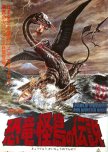
There were no Dinos or Monster Birds here
Taking the formula established by the success of Jaws and combining it with the domestic kaiju film, Legend of Dinosaurs and Monster Birds had a decent amount of potential but ultimately shot itself right in the explosive tank before it could fully realise that. The DNA of the film feels ripped right from Nessie, the tragically cancelled collaboration between Toho and Hammer, with climate anomalies and seismic activity reviving prehistoric reptiles to terrorise the residents around a legendarily monster-haunted lake. One of those creatures is a Plesiosaurus with the film even referring to poor Nessie at a few points during its runtime, Toei was evidently listening at the walls of Toho studios one summer day. Director Junji Kurata seems to have failed to fundamentally grasp the premise of a huge monster operating by stealth and picking off its victims individually in secret, regardless, his direction is nonetheless passable. The film doesn't allow you to bond with the characters, there's little reason to care for them beyond their base archetypes, however, the actors all turn in decent performances at least. The ill-fitting and often hilariously juxtaposed music by Masao Yagi is usually the film's talking point, combining a catchy mixture of disco, funk, and jazz. Despite a healthy dosing of gory violence and some great effects work, Legend of Dinosaurs and Monster Birds is a really outlandish film, odd and sometimes surreal, it's at least capable of keeping your interest from beginning to end.Was this review helpful to you?
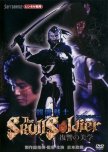
Silly DTV toku gem
A clear passion project by guitarist turned actor Masaki Kyomoto, The Skull Soldier is a relatively cheap but hugely stylised little DTV tokusatsu gem from Tsuburaya. Gritty and exploitive, the film's tone can vary wildly mixing elements of horror, comedy and rockabilly funk with graphic violence, sex & nudity. The whole thing is pretty much an unofficial live-action adaptation of Shotaro Ishinomori's The Skull Man, Kyomoto's direction is pretty great given his budgetary limitations and lack of experience. Still, I feel the film runs a bit too long for the material he's got. The comedic moments don't really endear the movie to me as they often come at the expense of an otherwise tightly plotted and well-realised story. However, the action, as brief as it is is brilliantly envisioned, the design of the titular anti-hero is exceptional, big ups Keita Amemiya, the performances are engrossing all around and the soundtrack is a superb selection of rocking synth tunes. The Skull Soldier isn't perfect by any means, but it's a special little film in its own right. Seek it out if you have the time.Was this review helpful to you?
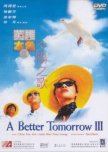
A Better Tomorrow 3: Love and Death in Saigon
0 people found this review helpful
Would be better if it were longer
After the rather heated production woes of the previous film, John Woo split from Tsui Hark and went off to self-finance his original draft for A Better Tomorrow III and in the process create his masterpiece, Bullet in the Head. With Woo and Hark's working relationship having deteriorated, Hark decided to helm his vision of a prequel himself. Unfortunately what we get ultimately feels like Hark being lazy, cashing in on the name with Hark's take on the heroic bloodshed genre, one of which he grounds into a harsh reality. The biggest problem with this film for me is its writing, it doesn't really feel like a prequel to A Better Tomorrow because the character depth and dynamics we loved so much about the previous two just aren't here.However, there's still some good stuff to be found in A Better Tomorrow III, Hark's direction is fabulous with so many of his trademark imaginative camera shots and the action is brilliant, especially the finale involving machine guns, a tank and a motorbike; the music by Lowell Lo is lovely and makes good use of Joseph Koo's cues and, despite him really not giving a shit about this film or how his character was written, Chow Yun-fat turns in a marvellous performance as Mark once again. All in all, if you go in with much lower expectations, A Better Tomorrow III: Love and Death in Saigon will deliver an enjoyable if immensely flawed ride.
Was this review helpful to you?
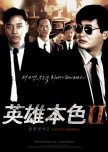
An enjoyable mess
The fact that A Better Tomorrow II somehow manages to form a somewhat cohesive narrative and deliver some more uproarious Woo action is nothing short of a miracle. While the moment-to-moment editing is extremely questionable, seriously, the number of hard cuts in this movie that feel like we're jumping over some very necessary details; all get thrown out the door for an absolutely brilliant finale that is more than a highlight in Woo's already-stacked repertoire.The absolute mess of its production is infamous, with John Woo and Tsui Hark constantly disagreeing with each other over how the film should go eventually resulting in two different versions of the film being shot, separately edited and then edited together again by another team. Honestly, if someone were to find the original film elements of this movie, you could most likely cobble together, at minimum, 5 different cuts putting Blade Runner to shame.
Chow Yun-fat is completely unhinged in this one, be it crying over some rice or nearly being blown up due to an explosion gone wrong, I love it. Ti Lung and Leslie Cheung retain their great performances of certified bromance which made the original so endearing. Joseph Koo's soundtrack is great, at least when he isn't egregiously overusing the main theme at every possible moment. For what it's worth, however, while this film may be an unfocused mess, it's still ridiculously entertaining with all of Woo's loveable trademarks still very much in place.
Was this review helpful to you?
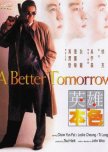
Simply Marvellous
Considering A Better Tomorrow was produced on a relatively small budget and sent into cinemas with virtually no advertising, it's simply incredible to witness what is the birth of Hong Kong gangster cinema as we know it today. Pretty much any of the film's wonkier moments are bolstered by its captivating musical score by Joseph Koo, the gripping story, epic shootouts and incredible leading performances of Ti Lung, Leslie Cheung and, the epitome of coolness himself, Chow Yun-fat. In 95 minutes, John Woo redefines his entire filmmaking career into one that is very often imitated but never matched, his ballads of heroic bloodshed and emotional male leads leave me enchanted every time. A Better Tomorrow is simply marvellous.Was this review helpful to you?
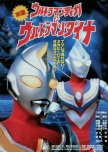
Ultraman Tiga & Ultraman Dyna: Warriors of the Star of Light
0 people found this review helpful
Ultraman Dyna and the cameoing Tiga
Greatly benefitting from a larger budget and its theatrical status, Ultraman Tiga & Ultraman Dyna: Warriors of the Star of Light ultimately plays like two TV series episodes cut together as a movie and less like the team-up promised by its title. Sluggishly paced but exceptionally well-directed the film does at least look pretty fabulous, Kazuya Konaka did a great job here while Tatsumi Yano's music is as great as it has always been. The model and practical effects work is marvellous and looks tremendous in the widescreen format, although the CG character work is abundant and extremely rough. The acting from its cast is solid, but like the show, I still haven't gelled with Asuka's character as a protagonist, even if this film largely focuses on his inner turmoil and occasional suicidal thoughts. The Tiga aspect of this film is more set dressing than anything else, with the titular Ultra only showing up during the climax but conspicuously missing his host, Daigo. While it is lovely to see most of the cast of the GUTS squad again, the conspicuous absence of Hiroshi Nagano doesn't make the reunion feel authentic. Ultimately, I wish the story for this one was better, there's a lot of good stuff in here but it just fails to stick the landing.Was this review helpful to you?
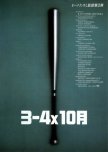
a master stealing home between two out-of-the-park home runs.
What Boiling Point may lack in contemplativeness, playing the material not for action or thrills but with comedy so dark and deadpan that its intent can be easily lost on many. Tranquillity explodes into violence, which recedes to its original serenity. A tale unfolding sedately against a backdrop of calm sunny stillness punctuated by shocking moments of unpalatable violence that points to the behind-the-scenes mundanity of the perceived glamour of organised crime in Japan as presented in yakuza films. As his first scripted effort, that narrative almost dissolves into abstractions and digressions, but Kitano largely stays the course with a compellingly warped look at the uniquely Japanese culture of violence. Kitano himself turns up very late in the film's runtime, his presence as welcomed as ever, leading both protagonists and viewers alike on a guided tour of the bleaker recesses of the human psyche with the lack of a musical score heightening the tone and storytelling power behind his magnificent direction. Boiling Point may not be as refined as Kitano's later works, but it more than establishes Kitano as an artist with a clear vision and distinctive style.Was this review helpful to you?
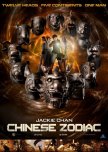
Doesn't hold a candle to the first two
Jackie's belated third entry into his Armour of God series, Chinese Zodiac unfortunately lumbers like a cheap DVD knock-off of one of his old classics. It's decent if unsophisticated family entertainment that demonstrates that Jackie can still put together creative and unique action set pieces. The problem stems from the fact that it lacks so many of Jackie's creative staples and goes way overboard in terms of preaching to the choir with characters practically stopping dead in their tracks to put on their moralising hat and deliver some earnest statement about national pride; there is certainly a feeling of toeing the party line found here that won't be found in his earlier films. Dealing with the film is like dealing with Jackie himself: you have to tune out the crappy stuff to appreciate the unique entertainer that lies within. That being said, Jackie doesn't phone it in as would be so easy with a legacy sequel like this, he still has some charisma to burn and despite the ugly and glossy digital sheen that coats the movie, it's very well shot and directed. Outside of Jackie the only other member of the cast I enjoyed was Kwon Sang-woo, he certainly made a good impression here and I hope I get to see more of him in future. Lacklustre, slow and overly long, Chinese Zodiac only hints at Jackie's winning combo of kineticism, martial arts and comedy despite being occasionally strikingly shot and having its share of populist fun, it just really doesn't do justice to Jackie's film heritage.Was this review helpful to you?
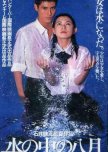
A self-assured exercise in style.
I wanted to start August off right and I knew August in the Water just had to be watched after my experiences with Gakuryū Ishii back in January. Mixing New Age spirituality, animism, astrophysics and advancement in technology, August in the Water can easily be described as the quintessential vaporware film, often feeling like several overlapping films that somehow complement and deepen each other's various mysteries. Ishii crafts a film that largely unfolds as a succession of mood pieces, remaining optimistic as it deconstructs the meaninglessness of our existence while simultaneously offering a hallucinatory analysis of coming-of-age malaise. The direction and framing are just sumptuous, it's all handled in a familiar and comforting style not too far removed from other Japanese filmmakers of the '90s. Part of that comfort comes from the film's incredible sound design and gorgeous musical score by Hiroyuki Onogawa, new age sound blending with classical synthesisers. Exceptionally intriguing and self-assured exercise in style with wry observations about modern Japanese life, August in the Water is simply beautiful in its deliverance, one that I can't recommend enough.Was this review helpful to you?
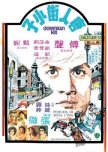
Bitterly average HK gangster flick
Born out of director Chang Cheh's desire to make anything other than another period martial arts piece, Chinatown Kid doesn't quite live up to its status as a classic in the Shaw Brothers' library of works. Utilising the standard martial arts framework as a backdrop to an entertaining, though exceptionally lightweight, examination of the pitfalls often experienced by Chinese citizens abroad and the circumstances which can divide even the staunchest heart. Chang's direction is decent, Alexander Fu Sheng's performance is fabulous and the music gets the job done but the whole film doesn't quite come together as neatly as I'd like thanks to its barebones script and long-winded runtime, it doesn't exactly tread over new ground either. While Chinatown Kid includes a little bit of everything and then some; from comedy to gangsterism and kung fu to big shoot-outs, it ultimately fails to connect the dots and ends up as a relatively average affair with occasional strong points of contention.Was this review helpful to you?
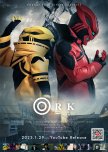
Peak indie toku
A genuinely staggering piece of independent tokusatsu filmmaking, Ork is a truly touching look into loss and self-destruction combining the aesthetics of Kamen Rider and the stylings of Shinji Higuchi. If I hadn't known that this was shot entirely on an iPhone I would have genuinely mistaken it for something we often see produced by professionals. It's absolutely beautiful in its imagery, gorgeously crafted, deeply emotional, evocative stunningly choreographed and elaborately staged, not letting any of its limitations hold it back. Wonderfully acted and backed by an incredible score, Ork really has opened my eyes to the wider scope of indie tokusatsu filmmaking. I can see these guys going far, I hope they make another one.Was this review helpful to you?
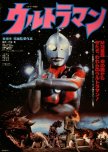
Pure Jissoji
A compilation film made up of Akio Jissoji-directed Ultraman episodes that solidifies why the man was such a long-lasting creative powerhouse both within and outside of this franchise. Thematically heavy and rich in subtext, the film highlights that while it may have been a kid's show on its surface, the original Ultraman could appeal to everyone of any age, inspiring hope wherever it goes.Was this review helpful to you?





